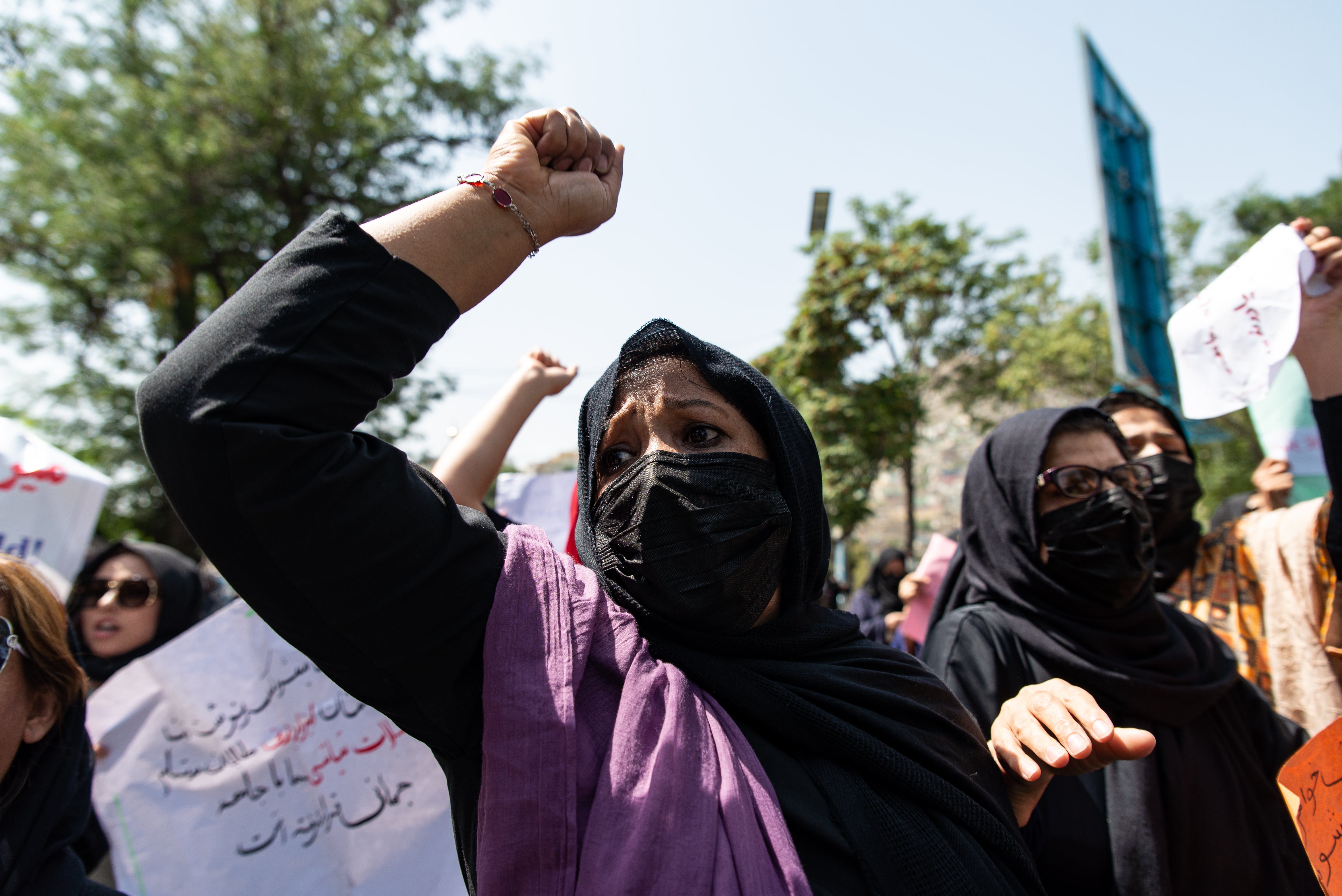It is a year since the Taliban retook Kabul and, along with it, overall control of Afghanistan – with the country only seeming to move backwards during that period, as a strict interpretation of Islamic law has been imposed.
Despite repeated claims made by the Taliban after it seized the nation’s capital, any sense that we might see a more moderate rule compared with when the group last ruled the country two decades ago has been firmly put to bed.
Girls across Afghanistan have had their hopes of education dashed, having been barred from attending school above primary level. A reprieve in March was cruelly snatched away when Taliban leaders overruled education officials just hours after schools reopened for the start of a new academic year. The ban is supposed to be temporary, but no date has been set for it to end.
Women have been barred from many jobs, and are prevented from travelling beyond certain distances or going to work unless accompanied by a male guardian. Strict dress codes are also now the norm. Those who had sought future careers as doctors, lawyers and government officials – or had already started them – have been left with little hope. Just this weekend, a group of female protesters was dispersed in Kabul. The protesters chanted their demand for “Bread, work and freedom”, and carried a banner reading “August 15 is a black day”.
While some across the country will have welcomed the departure of international troops from the country and the potential for peace after two decades of war and violence, today we carry the stories of some of those who, having helped British troops, were left behind as UK forces (and others) withdrew last summer; and of some who found their own way out. The fear of retribution is palpable, with many telling stories of detention, forced disappearances and torture. They talk of the danger they have faced themselves, as well as the punishments visited on people they know, or on critics of the Taliban.
Afghanistan is facing a severe economic crisis, and its people are hungry, as illustrated by the protesters’ demand for bread. According to the UN, almost 20 million citizens now face acute hunger – about 50 per cent of the population – and millions have been displaced since the Taliban retook power. The hunger may have been assuaged a little during the summer months, thanks to the annual harvest, but winter is another matter.
To keep up to speed with all the latest opinions and comment, sign up to our free weekly Voices Dispatches newsletter by clicking here
Half of the country’s population is said to need humanitarian assistance to survive – double the number in 2020. The United Nations Development Programme has said that the country is close to “universal poverty”, with many of its people living below the World Bank-designated international poverty line.
It is a situation that the international community cannot ignore, even if Taliban rule has left Afghanistan isolated on the world stage. The UK’s programmes to support those who helped British forces, along with other refugees, should seek to reach as many people as possible, and must expedite the processing of applications.
While much of the world’s attention has been focused on Russia’s invasion of Ukraine, we must not forget the people of Afghanistan.




Join our commenting forum
Join thought-provoking conversations, follow other Independent readers and see their replies
Comments